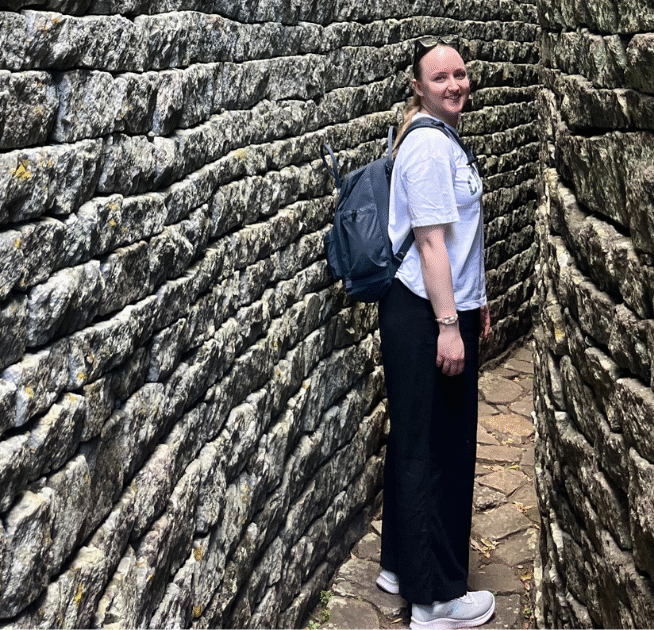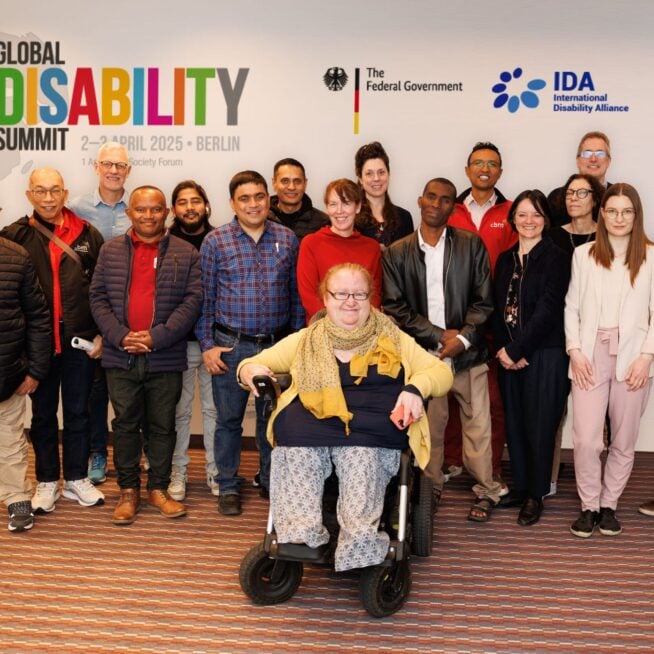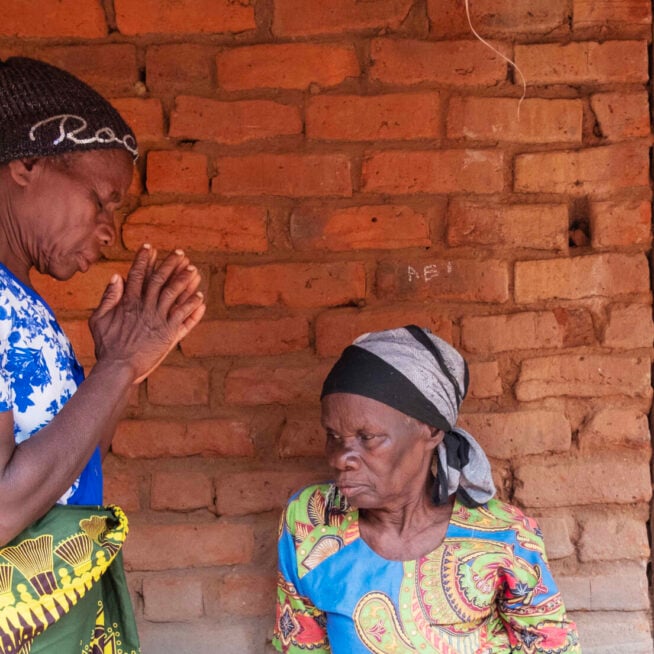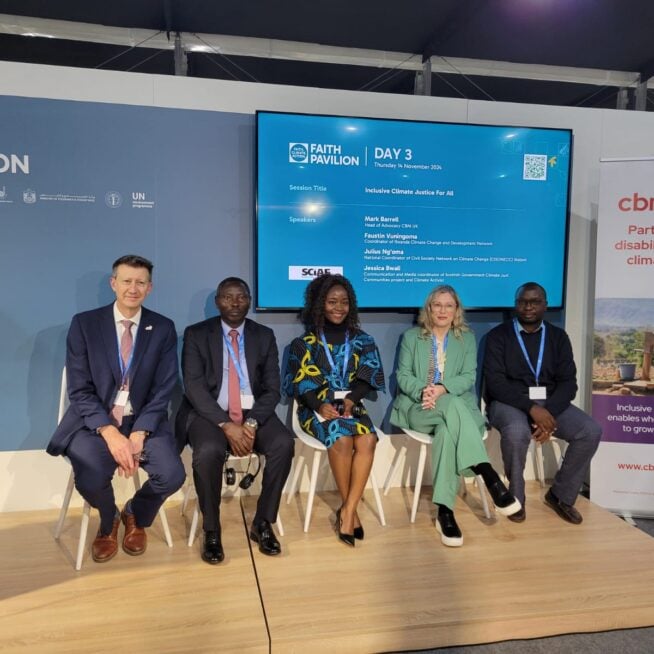Want to transform lives with us? Stay in touch and hear about our news, activities and appeals by email!
Respect Not Abuse: reducing violence against women and girls with disabilities in Nigeria
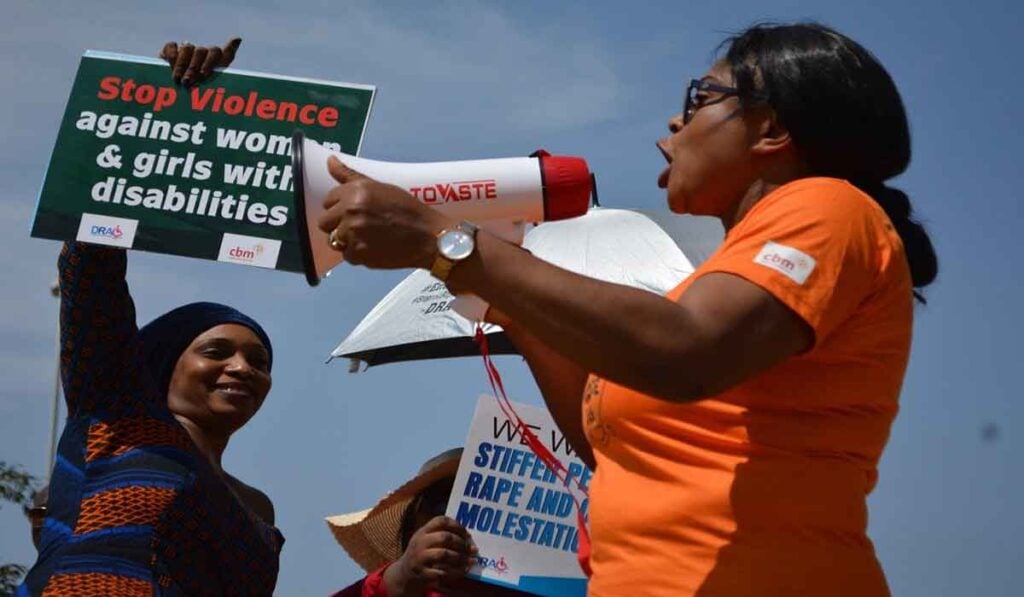
International Day for the Elimination of Violence against Women is coming up on 25 November. To mark this important day, we wanted to share some of the progress that’s been made to tackle violence against women and girls with disabilities in Nigeria through our Respect Not Abuse project, a partnership between CBM UK and Nigerian disability organisation Disability Rights Advocacy Centre (DRAC), which is coming to a close this year. This blog was co-written by Karen Glisson, CBM UK, and Irene Ojiugo Patrick-Ogbogu, DRAC.
In Nigeria, women and girls with disabilities are twice as likely to encounter gender-based violence than other women. In particular, they experience higher levels of domestic violence and sexual assault, usually from male partners or relatives. The abuse, and long term impact, can be both physical and psychological.
“A healthy self-esteem is very important in a person’s life because it gives you more inner stability; you begin to feel deserving of the good things of life. You learn to love yourself. It will make you less susceptible to becoming a victim of abusive behaviours and actions. Look beyond your disability and see yourself as a woman and a human being, and realise the powers you hold.”
These are the words of one of the women involved in our Respect Not Abuse project. Over the past three years, we’ve been working with the Disability Rights Advocacy Centre (DRAC), a Nigerian disability organisation, to reduce violence against women and girls with disabilities, and to increase their access to justice and to sexual and reproductive health services. The project has contributed significantly to policy and research to support the improvement of the lives of women and girls with disabilities in Nigeria.
Founded in 2009, DRAC focuses on advocacy, research, awareness-raising and giving technical disability inclusion advice to mainstream NGOs and government departments. Their goal is to promote the rights of people with disabilities, to facilitate their social inclusion in the development agenda and to increase awareness about the situation of women with disabilities in Nigeria. The organisation is not large, but the vision of its Director, Irene Ojiugo Patrick-Ogbogu, and the commitment of its team and volunteers mean that its voice carries far. Irene is a wheelchair user and many of the organisation’s staff and volunteers are people with disabilities. CBM and DRAC have been working together since 2016, with complementary skills and experience to contribute to the partnership as well as a sense of common purpose.
With funding from this project, DRAC worked closely with the Federal Ministry of Health to develop the first National Policy on Sexual and Reproductive Health and Rights of Persons with Disabilities with emphasis on women and girls. After an extensive collaboration between the government and civil society, the policy was adopted by the government of Nigeria in June 2018, with the Minister acknowledging their indebtedness to DRAC as their lead technical partner. DRAC have also helped to raise awareness of it, including through translation of the policy into local languages, and through holding workshops to inform people with disabilities about its provisions.
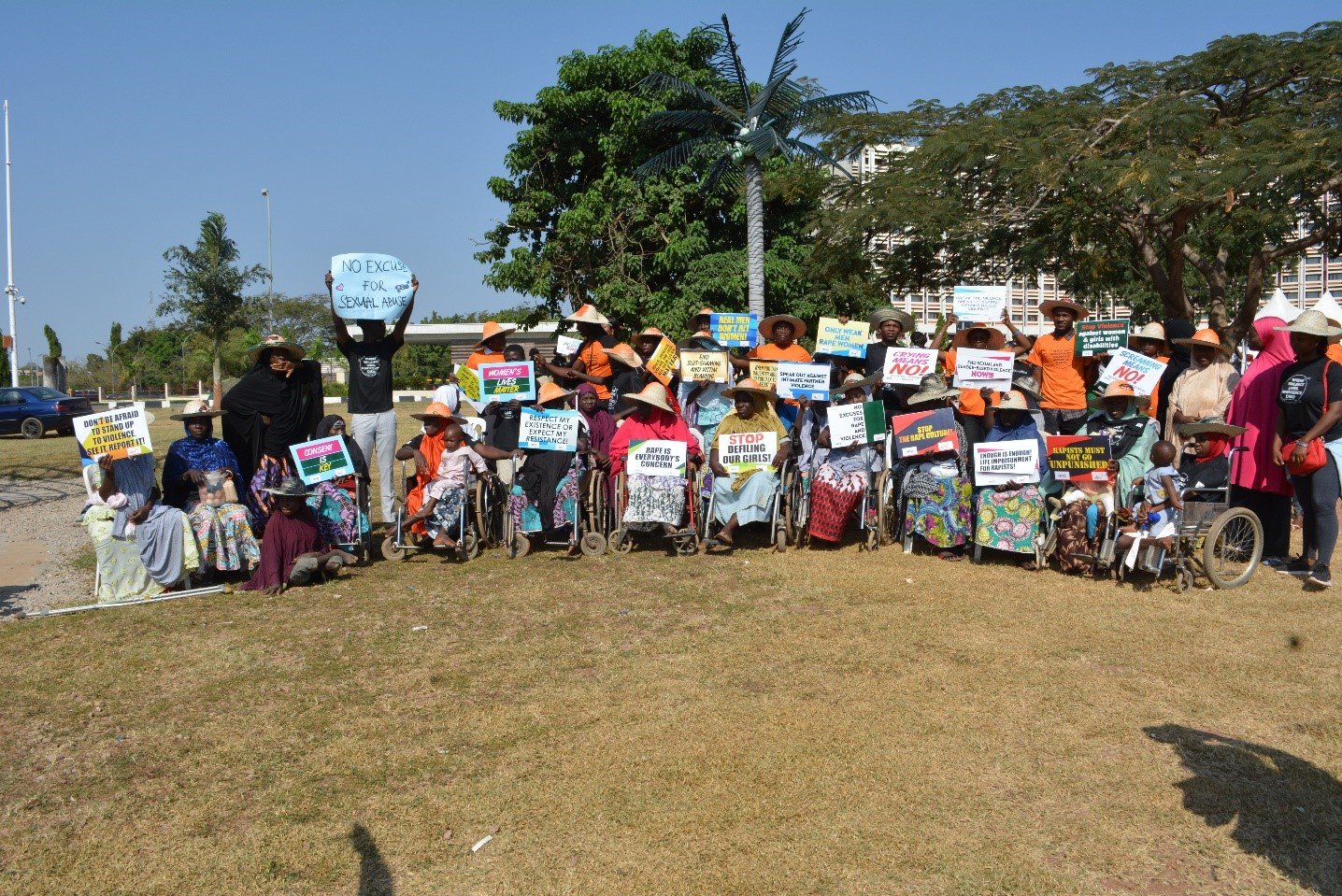
The DRAC team and the disability community at an awareness rally in Nigeria.
Previously, there had been little information available about the situation of people with disabilities in Nigeria, and this has been an issue for policy makers and service providers. However, CBM and DRAC set about to change that. The Respect Not Abuse project has produced two research studies.
“Fallen through the Cracks”: a baseline survey of women’s experiences, public knowledge and attitudes
The first research study, ‘Fallen through the Cracks’, looked at the knowledge, attitude and perception of the general population on violence against women and girls with disabilities through a survey with 350 respondents. The study also conducted focus group discussions with 50 women and girls with disabilities about their experience of violence. The results were shocking, even to DRAC, as Amaka Cecilia Agwu, Livelihoods Officer with DRAC, explains,
“We were taken aback to see just how much discrimination women and girls with disabilities experience. No-one had looked at the experience of women with disabilities of sexual and gender-based violence.”
The study heard many accounts of abuse of women with disabilities by intimate partners and acquaintances. Girls with disabilities in special schools reported being abused by people in positions of authority within the school environment. Women and girls with disabilities shared feelings of hopelessness and a lack of confidence in the criminal justice system. They had no idea how to access relevant services. They found discrimination had left women with disabilities feeling less empowered to deal with factors that make them susceptible to violence and abuse. In conclusion, they called for laws and policies protecting women and girls with disabilities from violence to be created, enforced and implemented – via workable frameworks.
Access to justice for women and girls with disabilities
The second study was the ‘Pilot accessibility audit on health, social and criminal justice services in the Federal Capital Territory, Nigeria’. This survey found that the majority of clinics, hospitals, police stations and courts were not accessible to people with disabilities. As well as physical barriers, the survey found that public institutions lacked disability-friendly or equity policies and procedures. Above all, they highlighted the marked difference they observed where institutions had trained their staff on disability-related issues, where they found that staff demonstrated a positive attitude towards people with disabilities and accessibility.
The two research projects were a huge step forward in starting to tackle the issue of violence against women and girls with disabilities in Nigeria.
Irene Ojiugo Patrick-Ogbugo says, “At the time we started the Respect Not Abuse project, there was almost no data on disability for Nigeria. The ‘Fallen through the Cracks’ baseline survey was a first step forward, and people still refer to it. The accessibility audit, too, is still used by other organisations to inform their interventions”.
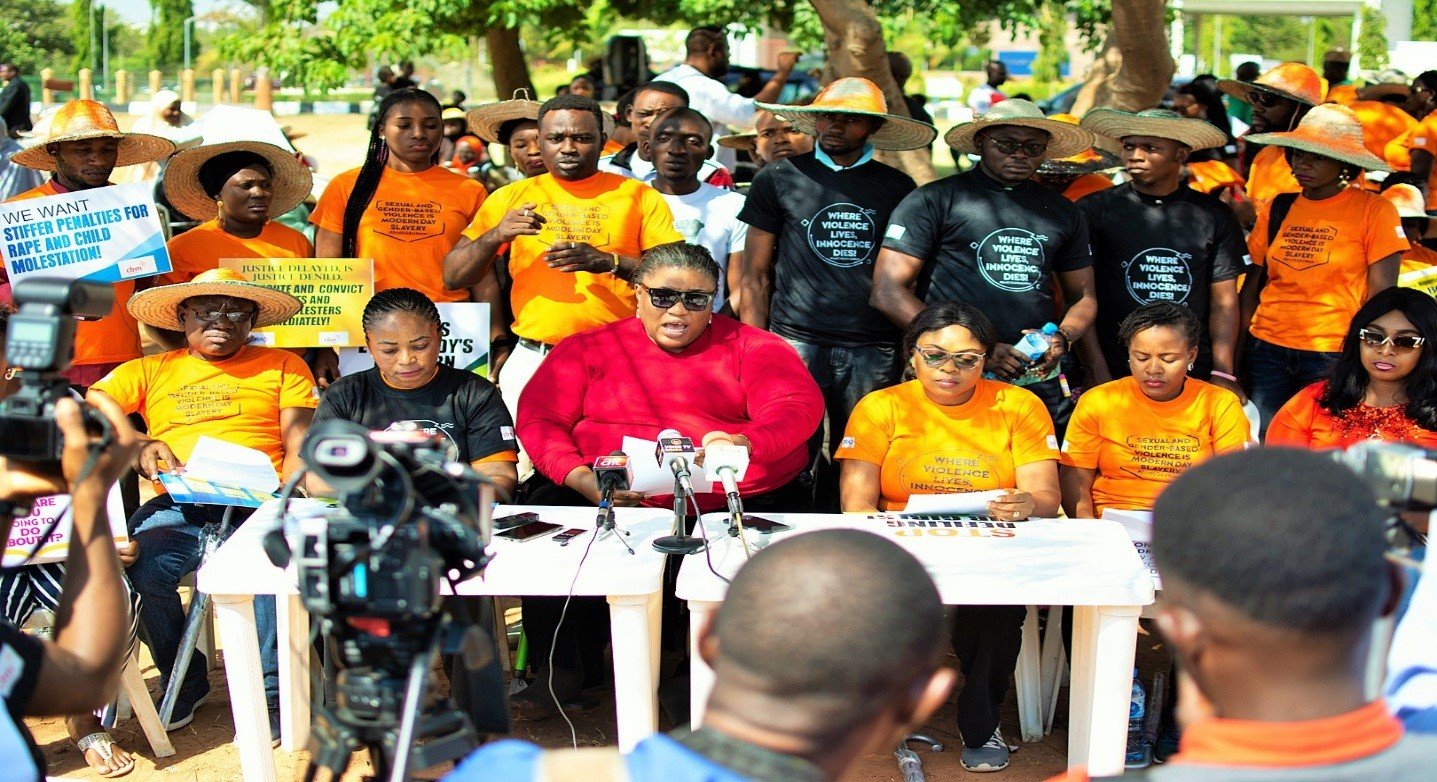
DRAC Director, Irene Ojiugo Patrick-Ogbogu, speaking during a press briefing at an awareness rally in Nigeria.
She goes on to say, “Our work on Respect Not Abuse opened our eyes to the types of violence that women and girls with disabilities experience, the intersections with poverty, and their dependence on their caregivers. It also opened the eyes of the women themselves. DRAC educated them about their rights. Women living in violent situations understood their situation better and realised that they could leave. The knowledge of their rights improved their self-esteem and confidence. They told us that after they heard from us they had hope for a better future for their daughters. From this, DRAC developed a culture of involving women and girls with disabilities in each element of our work, at every stage”.
As the Respect Not Abuse project closes, CBM and DRAC are continuing their partnership with a new project, Break the Cycle, helping women and girls with disabilities to improve their income and their financial security, as well as building their confidence and developing their leadership potential. Funded by the Jo Cox Memorial Fund through UK Aid Direct, the project is progressing well so far, with women and girls with disabilities enthusiastically embracing the opportunities offered through it. Find out more about our Break the Cycle project.
Images: Top – Participants demanding justice for women and girls with disabilities at an awareness rally in Nigeria. Middle – The DRAC team and the disability community at an awareness rally in Nigeria. Bottom – DRAC Director, Irene Ojiugo Patrick-Ogbogu, speaking during a press briefing at an awareness rally in Nigeria.

